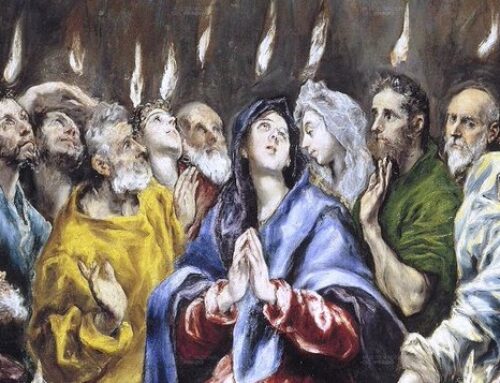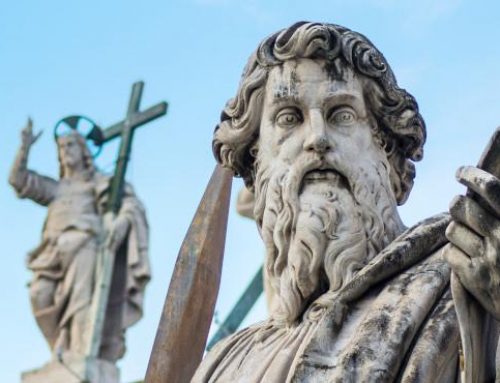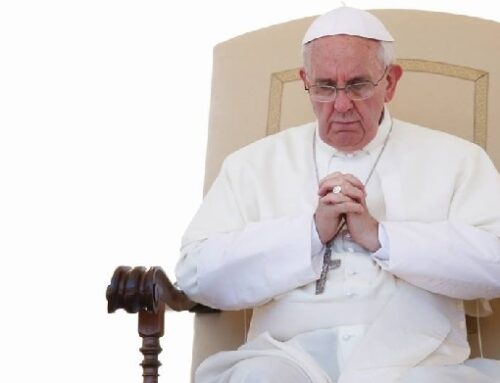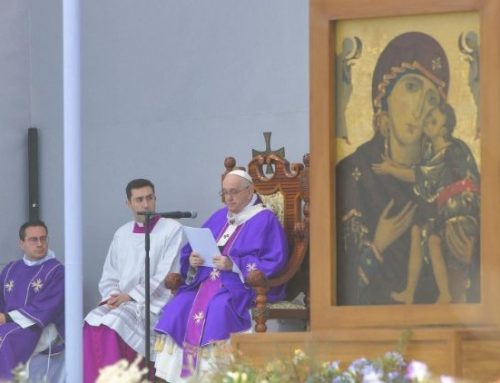“In this Extraordinary Jubilee Year of Mercy, we have very present that there cannot be a genuine quest for Christian unity without entrusting ourselves fully to the Father’s mercy. Let us ask first of all for forgiveness for the sin of our divisions, which are an open wound in the Body of Christ
“In this Extraordinary Jubilee Year of Mercy, we have very present that there cannot be a genuine quest for Christian unity without entrusting ourselves fully to the Father’s mercy. Let us ask first of all for forgiveness for the sin of our divisions, which are an open wound in the Body of Christ”
Here is a translation of the text of Pope Francis’ homily:
“I am the least of the Apostles, because I persecuted the Church of God. But by the grace of God I am what I am, and His grace toward me was not in vain” (1 Corinthians 15:9-10). Thus the Apostle Paul summarizes the meaning of his conversion. It — which happened after his dazzling encounter with the Risen Jesus (Cf. 1 Corinthians 9:1) on the road from Jerusalem to Damascus — was not first of all a moral change, but a transforming experience of the grace of Christ and, at the same time, a call to a new mission, that of proclaiming to all that Jesus which he first persecuted, persecuting His disciples. At that moment, in fact, Paul understood that there is a real and transcendent union between the living Christ in eternity and His followers: Jesus lives and is present in them and they live in Him. The vocation to be an Apostle was not founded on the human merits of Paul, who considered himself “least” and “unworthy,” but on the infinite goodness of God, who chose him and entrusted the ministry to him.
A similar understanding of what happened on the road to Damascus is also testified by Saint Paul in the First Letter to Timothy: “I thank Him who has given me strength for this, Christ Jesus our Lord, because He judged me faithful by appointing me to this service, though I formerly blasphemed and persecuted and insulted Him; but I received mercy because I had acted ignorantly in unbelief, and the grace of our Lord overflowed for me with the faith and love that are in Christ Jesus” (1:12-14). God’s superabundant mercy is the only reason on which Paul’s ministry is founded and it is, at the same time, what the Apostle must proclaim to all.
Saint Paul’s experience is similar to that of the communities to which the Apostle Paul addressed his First Letter. Saint Peter addressed members of small and fragile communities, exposed to the threat of persecutions, and he applied to them the glorious titles attributed to the holy People of God: “you are a chosen race, a royal people, a holy nation, God’s own People” (1 Peter 2:9). For those first Christians, as it is today for us, baptized, it is a reason of comfort and of constant astonishment to know that we have been chosen to be part of God’s plan of salvation, carried out in Jesus Christ and in the Church. “Why, Lord, me precisely?” “Why us precisely?” We draw here the mystery of God’s mercy and choice: the Father loves all and wants to save all, and, therefore, He calls some, “overcoming” them with His grace, so that through them His love can reach all. The mission of the whole People of God is to proclaim the wonderful works of the Lord, first among all the Paschal Mystery of Christ, through which we passed from the darkness of sin and death to the splendor of His new and eternal life (Cf. 1 Peter 2:10).
In the light of the Word of God that we heard, and which has guided us during this Week of Prayer for Christian Unity, we can truly say that all of us, believers in Christ, are “called to declare the wonderful deeds of God” (Cf. 1 Peter 2:9). Beyond the differences that still separate us, we acknowledge with joy that at the origin of Christian life there is always a call whose author is God Himself. We can progress on the path of full visible communion between Christians not only when we approach one another, but above all in the measure in which we are converted to the Lord, who by His grace chooses and calls us to be His disciples. And to be converted means to let the Lord live and operate in us. Therefore, when Christians of different Churches listen to the Word of God together and seek to put it into practice, they truly take important steps towards unity. And it is not only the call that unites us; the mission itself also brings us together: to declare to all the wonderful deeds of God. Like Saint Paul, and like the faithful to whom Saint Peter writes, we too cannot but proclaim the merciful love that has conquered and transformed us. While we are on the way to full communion between us, we can now develop many forms of collaboration to foster the spread of the Gospel. And by walking and working together, we realize that we are already united in the Lord’s name. In this Extraordinary Jubilee Year of Mercy, we have very present that there cannot be a genuine quest for Christian unity without entrusting ourselves fully to the Father’s mercy. Let us ask first of all for forgiveness for the sin of our divisions, which are an open wound in the Body of Christ. As Bishop of Rome and Pastor of the Catholic Church, I want to invoke mercy and forgiveness for the non-evangelical behaviours of Catholics in their relations with Christians of other Churches. At the same time, I invite all Catholic brothers and sisters to forgive if, today or in the past, they suffered offenses by other Christians. We cannot cancel what was, but we do not want the weight of the faults of the past to continue to pollute our relations. God’s mercy will renew our relations.
In this atmosphere of intense prayer, I greet fraternally His Eminence the Metropolitan Gennadios, representative of the Ecumenical Patriarchate; His Grace David Moxon, personal representative in Rome of the Archbishop of Canterbury, and all the representatives of the different Churches and Ecclesial Communities of Rome, gathered here this evening. With them we crossed the Holy Door of this Basilica, to remember that the only door that leads to salvation is Jesus Christ our Lord, the merciful face of the Father.
I express a cordial greeting also to the Orthodox and Eastern Orthodox young people studying here in Rome with the support of the Committee of Cultural Collaboration with the Orthodox Churches, which works with the Council for Promoting Christian Unity, as well as the students of the Bossey Ecumencial Institute, on a visit here in Rome to deepen their knowledge of the Catholic Church.
Dear brothers and sisters, let us unite ourselves to the prayer that Jesus Christ addressed to the Father: “that they may all be one […] so that the world may believe” (John 17:21). Unity is a gift of the mercy of God. Here before the tomb of Saint Paul, Apostle and martyr, cherished in this splendid Basilica, we feel that our humble request is supported by the intercession of the multitude of Christian martyrs of yesterday and of today. They responded with generosity to the Lord’s call, they gave faithful witness with their life of the wonderful deeds that God has done for us, and they now experience full communion in the presence of God the Father. Supported by their example and comforted by their intercession, we address our humble prayer to God.
Zenit.org







Leave A Comment
You must be logged in to post a comment.